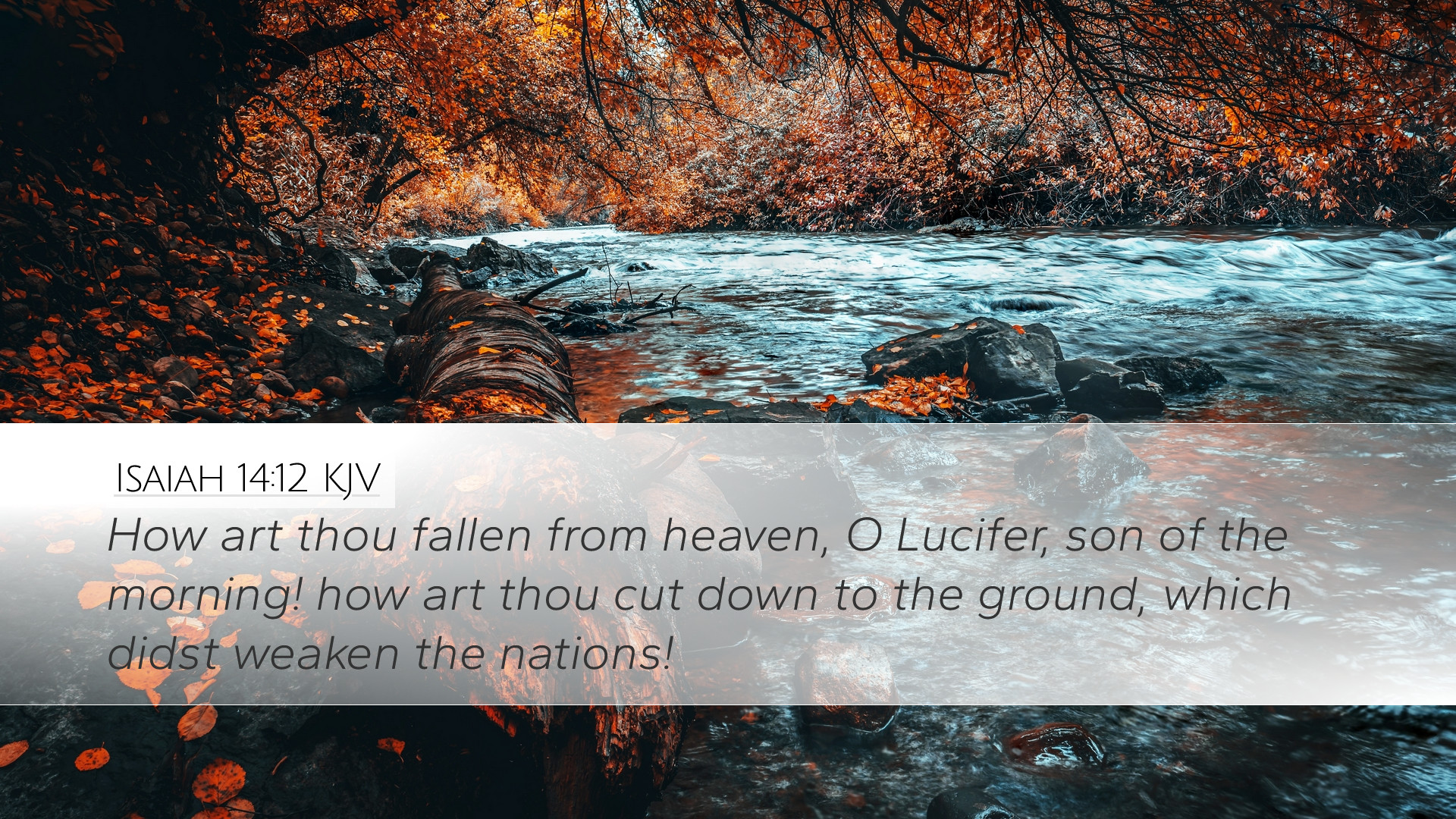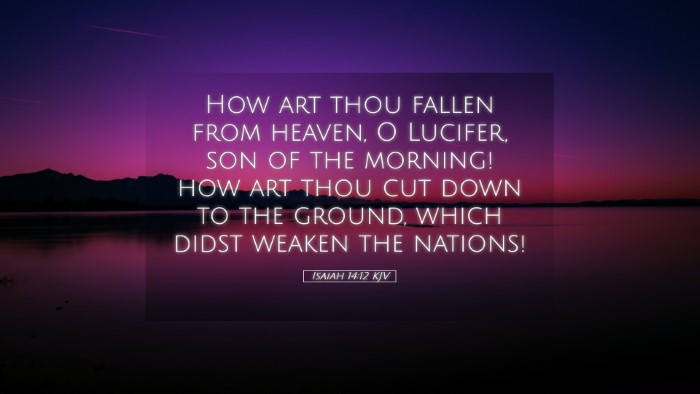Isaiah 14:12 - Commentary Overview
Verse: "How art thou fallen from heaven, O Lucifer, son of the morning! how art thou cut down to the ground, which didst weaken the nations!" (Isaiah 14:12)
Context and Historical Background
The verse belongs to a portion of Isaiah that addresses the pride and downfall of Babylon, drawing a parallel to the fall of a celestial figure often identified as Lucifer. This passage has been the subject of much theological discussion regarding both its immediate context as it pertains to Babylon's king and its broader implications concerning spiritual warfare and the nature of pride.
- Historical Context: Babylon, once a powerful empire, represented oppression and idolatry, which is critiqued in this prophecy.
- Thematic Elements: Themes of pride, downfall, and judgment are central to the understanding of this text.
Key Themes and Insights from Commentaries
This verse is rich in meaning and has been interpreted in various ways by key commentaries. Below are summarized insights from notable public domain commentaries.
1. Matthew Henry's Commentary
Henry highlights the metaphorical fall of Lucifer, suggesting it reflects the nature of pride. According to his interpretation:
- Pride and Ambition: Lucifer's exaltation leads to his ultimate downfall, demonstrating that those who lift themselves will be brought low.
- Symbol of Rebellion: The term 'Lucifer' signifies a bright morning star, symbolizing beauty and splendor—indicative of the potential within created beings for both greatness and destruction.
2. Albert Barnes' Commentary
Barnes provides a thorough analysis of the term "Lucifer," suggesting that it is used to depict the king of Babylon's hubris:
- Fallen from Heaven: The imagery of falling from heaven alludes not only to physical calamity but also a moral and spiritual decline.
- Weakening the Nations: This reflects the king’s previous role in instilling fear and maintaining dominance over surrounding nations.
3. Adam Clarke's Commentary
Clarke offers a detailed linguistic and contextual analysis:
- Heavenly Aspirations: The phrase emphasizes the suddenness of the fall, contrasting the grandeur of aspirations with the depths of humility.
- Etymology of Lucifer: Clarke draws attention to the meaning of 'Lucifer' as 'light-bringer', contributing further understanding to the tragic transition from light to darkness.
Theological Implications
The verse evokes several larger theological discussions, including:
- The Nature of Sin: Sin begins with pride, as seen in the narrative of Lucifer—a reminder for believers about the perils of self-exaltation.
- Hope and Restoration: While acknowledging the judgment of God, there is an underlying message of hope for restoration and redemption after recognizing one's failures.
Practical Applications
For pastors and Christian leaders, Isaiah 14:12 serves as a powerful reminder of the dangers of pride in ministry and personal life. Key applications can include:
- Humility in Service: Embrace the attitude of servanthood, knowing that exaltation comes from God alone.
- Teaching About Spiritual Warfare: Equip believers with the understanding of the spiritual battle against pride and self-reliance.
Conclusion
The commentary on Isaiah 14:12 reveals profound insights into the nature of pride, judgment, and the essence of both human and divine authority. Drawing from cherished classics, this exploration encourages deeper reflection on how believers can navigate life with humility and grace, acknowledging that true strength lies in reliance on God.


